- Home
- Nora Roberts
Christmas In the Snow: Taming Natasha / Considering Kate Page 14
Christmas In the Snow: Taming Natasha / Considering Kate Read online
Page 14
“That’s nonsense. You don’t want to hear me tell you that I love you.”
“No.” Panic skidded up her spine. “No, I don’t. If you care for me at all, you won’t.”
“It’s a hell of a position you put me in.”
“I’m sorry. I want you to be happy. As long as things go on as they are—”
“And how long can things go on as they are?”
“I don’t know. I can’t give you back the words you want to give to me. Even feeling them, I can’t.” Her eyes lifted again to meet his. “I wish I could.”
“Am I still competing against someone else?”
“No.” Quickly she reached out to take his hands. “No. What I felt for—before,” she corrected, “was a fantasy. A girl’s make-believe. This is real. I’m just not strong enough to hold onto it.”
Or too strong to give in to it, he thought. And it was hurting her. Perhaps because he wanted her so badly, his impatience was adding pressure that would break them apart instead of bring them together.
“Then I won’t tell you that I love you.” He kissed her brow. “And that I need you in my life.” He kissed her lips, lightly. “Not yet.” His fingers curled tightly over hers. “But there’ll come a time, Natasha, when I will tell you. When you’ll listen. When you’ll answer me.”
“You make it sound like a threat.”
“No, it’s one of those promises you don’t want to hear.” He kissed her on both cheeks, casually enough to confuse her. “I have to get back.”
“Yes, so do I.” She picked up her gloves, only to run them restlessly through her hands. “Spence, it meant a very great deal that you wanted to share this with me. I know what it’s like to lose part of yourself. I’m very proud of you and for you. And I’m glad that you celebrated this with me.”
“Come back, have dinner with me. I haven’t begun to celebrate.”
She smiled again. “I’d like that.”
She didn’t often buy champagne, but it seemed appropriate. Even necessary. A bottle of wine was little enough to offer for what he had given her that morning. The music itself was a gift she would always treasure. With it, he’d given her time and a glimpse of hope.
Perhaps he did love her. If she believed it, she could allow herself time to let it strengthen. If she believed it, she would have to tell him everything. It was that, even more than her own fears that still held her back.
She needed time for that, as he did.
But tonight was for celebrating.
She knocked and tried a sober smile for Vera. “Good evening.”
“Miss.” With this noncommital greeting, Vera opened the door wider. She kept her thoughts on Natasha very much to herself. True, the woman made the señor happy and seemed very fond of Freddie. But after more than three years of having them to herself, Vera was very cautious of sharing. “Dr. Kimball is in the music room with Freddie.”
“Thank you. I brought some wine.”
“I will take it.”
With only a little sigh, Natasha watched Vera walk away. The more the housekeeper held firm, the more determined Natasha was to win her over.
She heard Freddie’s giggles as she approached the music room. And others, she realized. When she reached the door, she spotted Freddie and JoBeth clinging to each other and squealing. And why not? Natasha thought with a grin. Spence was wearing a ridiculous helmet and aiming a cardboard spool like a weapon.
“Stowaways aboard my ship are fed to the Beta Monster,” he warned them. “He has six-foot teeth and bad breath.”
“No!” Eyes wide, heart pounding with delight and dread, Freddie scrambled for cover. “Not the Beta Monster.”
“He likes little girls best.” With an evil laugh, he scooped the squealing JoBeth under one arm. “He swallows little boys whole, but he chews and chews and chews when I feed him girls.”
“That’s gross.” JoBeth covered her mouth with both hands.
“You bet.” So saying, Spence made a dive and came up with a squirming Freddie. “Say your prayers, you’re about to be the main course.” Then with a muffled “Oomph,” he tumbled onto the couch with both of them.
“We vanquished you!” Freddie announced, climbing over him. “The Wonder Sisters vanquished you.”
“This time, but next time it’s the Beta Monster.” As he blew the hair out of his eyes, he spotted Natasha in the doorway. “Hi.” She thought his smile was adorably sheepish. “I’m a space pirate.”
“Oh. Well, that explains it.” Before she could step into the room, both girls deserted the space pirate to launch themselves at her.
“We always beat him,” Freddie told her. “Always, always.”
“I’m glad to hear it. I wouldn’t want anyone I know to be eaten by the Beta Monster.”
“He just made it up,” JoBeth said wisely. “Dr. Kimball makes things up real good.”
“Yes, I know.”
“JoBeth’s going to stay for dinner, too. You’re going to be Daddy’s guest and she’s going to be mine. You get to have seconds first.”
“That’s very polite.” She bent to kiss Freddie’s cheeks, then JoBeth’s. “How is your mama?”
“She’s going to have a baby.” JoBeth screwed up her face and shrugged her shoulders.
“I heard.” Natasha smoothed JoBeth’s hair. “Are you taking care of her?”
“She doesn’t get sick in the mornings anymore, but Daddy says she’ll be fat soon.”
Miserably envious, Freddie shifted from one foot to the other. “Let’s go up to my room,” she told JoBeth. “We can play with the kittens.”
“You will wash your hands and faces,” Vera told them as she came in with the ice bucket and glasses. “Then you will come down to dinner, walking like ladies, not running like elephants.” She nodded to Spence. “Miss Stanislaski brought champagne.”
“Thank you, Vera.” Belatedly he remembered to remove his helmet.
“Dinner in fifteen minutes,” she stated, then went out.
“Now she knows I have designs on you,” Natasha muttered. “And is certain I’m after your great wealth.”
With a laugh, he pried the cork free. “That’s all right, I know you’re only after my body.” Wine frothed to the lip of the glasses, then receded.
“I like it very much. Your body.” With a smile she accepted the flute of champagne.
“Then maybe you’d like to enjoy it later.” He touched the rim of his glass to hers. “Freddie twisted my arm and got me to agree to a sleep-over at the Rileys’. So I don’t feel left out, maybe I can stay with you tonight. All night.”
Natasha took her first sip of wine, letting the taste explode on her tongue. “Yes,” she said, and smiled at him.
CHAPTER NINE
Natasha watched the shadows dancing from the lights the candles tossed around the room. Soothing, they played over the curtains, the top rung of the old ladder-back chair in the corner, over the coxcomb she had impulsively slipped into an empty milk bottle and set on her dresser. Her room, she thought. It had always been very much hers. Until…
With a half sigh she let her hand rest on Spence’s heart.
It was no longer quiet; the wind had risen to toss a late, cold rain against the panes. Outside it was a chilled, gusty night that promised a chilled, frosty morning. Winter often came early to the little town snuggled in the foothills of the Blue Ridge. But she was warm, beautifully warm, in Spence’s arms.
The silence between them was easy, as the loving had been. Curled close, they lay still, content to let the hours pass, one lazy second at a time. Each of them quietly celebrated the knowledge that in the morning they wouldn’t wake alone. His hand skimmed over her thigh, her hip, until it linked with hers.
There was music playing inside her head—the song he had given her that morning. She knew she would remember each note, each chord, for the rest of her life. And it was only the beginning for him, or a new beginning. The idea of that delighted her. In the years to come she wo
uld hear his music and remember the time they had had together. On hearing it she would celebrate again, even if his music took him away.
Still, she had to ask.
“Will you go back to New York?”
He brushed his lips through her hair. “Why?”
“You’re composing again.” She could imagine him there, in evening dress, attending the opening of his own symphony.
“I don’t need to be in New York to compose. And if I did, there are more reasons to stay here.”
“Freddie.”
“Yes, there’s Freddie. And there’s you.”
Her restless movement rustled the sheets. She could see him after the symphony at some small intimate party, the Rainbow Room perhaps, or a private club. He would be dancing with a beautiful woman.
“The New York you lived in is different from mine.”
“I imagine.” He wondered why that should matter to her. “Do you ever think of going back?”
“To live, no. But to visit.” It was silly, she thought, to be nervous about asking such a simple thing. “My mother called me today.”
“Is everything all right?”
“Yes. She only called to remind me about Thanksgiving. I’d almost forgotten. Every year we have a big dinner and eat too much. Do you go home for the holiday?”
“I am home.”
“I mean to your family.” She shifted to watch his face.
“I only have Freddie. And Nina,” he added. “She always goes out to the Waldorf.”
“Your parents. I’ve never asked you if you still have them, or where they live.”
“They’re in Cannes.” Or was it Monte Carlo? It occurred to him suddenly that he didn’t know for certain. The ties there were loose, comfortably so for everyone involved.
“Won’t they come back for the holidays?”
“They never come to New York in the winter.”
“Oh.” Try as she might, she couldn’t picture the holidays without family.
“We never ate at home on Thanksgiving. We always went out, were usually traveling.” His memories of his childhood were more of places than people, more of music than words. “When I was married to Angela, we usually met friends at a restaurant and went to the theater.”
“But—” She caught herself and fell silent.
“But what?”
“Once you had Freddie.”
“Nothing changed.” He shifted onto his back to stare at the ceiling. He’d wanted to tell her about his marriage, about himself—the man he had been—but had put it off. For too long, he reflected. How could he expect to build, when he had yet to clear away the emotional rubble of his past? “I’ve never explained to you about Angela.”
“It’s not necessary.” She took his hand again. She’d wanted to invite him to a meal, not dredge up old ghosts.
“It is for me.” Sitting up, he reached for the bottle of champagne they had brought back with them. Filling both glasses, he handed her one.
“I don’t need explanations, Spence.”
“But you’ll listen?”
“Yes, if it’s important to you.”
He took a moment to gather his thoughts. “I was twenty-five when I met her. On top of the world as far as my music went, and to be honest, at twenty-five, very little else mattered to me. I had spent my life traveling, doing exactly what I pleased and being successful in what was most important to me. I don’t believe anyone had ever told me, ‘No, you can’t have that. No, you can’t do that.’ When I saw her, I wanted her.”
He paused to sip, to look back. Beside him Natasha stared into her glass, watching bubbles rise. “And she wanted you.”
“In her way. The pity was that her attraction for me was as shallow as mine for her. And in the end just as destructive. I loved beautiful things.” With a half laugh he tilted his glass again. “And I was used to having them. She was exquisite, like a delicate porcelain doll. We moved in the same circles, attended the same parties, preferred the same literature and music.”
Natasha shifted her glass from one hand to the other, wishing his words didn’t make her feel so miserable. “It’s important to have things in common.”
“Oh, we had plenty in common. She was as spoiled and as pampered as I, as self-absorbed and as ambitious. I don’t think we shared any particularly admirable qualities.”
“You’re too hard on yourself.”
“You didn’t know me then.” He found himself profoundly grateful for that. “I was a very rich young man who took everything I had for granted, because I had always had it. Things change,” he murmured.
“Only people who are born with money can consider it a disadvantage.”
He glanced over to see her sitting cross-legged, the glass cupped in both hands. Her eyes were solemn and direct, and made him smile at himself. “Yes, you’re right. I wonder what might have happened if I had met you when I was twenty-five.” He touched her hair, but didn’t dwell on the point. “In any case, Angela and I were married within a year and bored with each other only months after the ink had dried on the marriage certificate.”
“Why?”
“Because at that time we were so much alike. When it started to fall apart, I wanted badly to fix it. I’d never failed at anything. The worst of it was, I wanted the marriage to work more for my own ego than because of my feelings for her. I was in love with the image of her and the image we made together.”
“Yes.” She thought of herself and her feelings for Anthony. “I understand.”
“Do you?” The question was only a murmur. “It took me years to understand it. In any case, once I did, there were other considerations.”
“Freddie,” Natasha said again.
“Yes, Freddie. Though we still lived together and went through the motions of marriage, Angela and I had drifted apart. But in public and in private we were…civilized. I can’t tell you how demeaning and destructive a civilized marriage can be. It’s a cheat, Natasha, to both parties. And we were equally to blame. Then one day she came home furious, livid. I remember how she stalked over to the bar, tossing her mink aside so that it fell on the floor. She poured a drink, drank it down, then threw the glass against the wall. And told me she was pregnant.”
Her throat dry, Natasha drank. “How did you feel?”
“Stunned. Rocked. We’d never planned on having children. We were much too much children, spoiled children ourselves. Angela had had a little more time to think it all through and had her answer. She wanted to go to Europe to a private clinic and have an abortion.”
Something tightened inside Natasha. “Is that what you wanted?”
He wished, how he wished he could have answered unequivocably no. “At first I didn’t know. My marriage was falling apart, I’d never given a thought to having children. It seemed sensible. And then, I’m not sure why, but I was furious. I guess it was because it was the easy way again, the easy way out for both of us. She wanted me to snap my fingers and get rid of this…inconvenience.”
Natasha stared down at her own balled fist. His words were hitting much too close to home. “What did you do?”
“I made a bargain with her. She would have the baby, and we would give the marriage another shot. She would have the abortion and I would divorce her, and make certain that she didn’t get what she considered her share of the Kimball money.”
“Because you wanted the child.”
“No.” It was a painful admission, one that still cost him. “Because I wanted my life to run the way I’d imagined it would. I knew if she had an abortion, we would never put the pieces back. I thought perhaps if we shared this, we’d pull it all together again.”
Natasha remained silent for a moment, absorbing his words and seeing them reflected in her own memories. “People sometimes think a baby will fix what’s broken.”
“And it doesn’t,” he finished. “Nor should it have to. By the time Freddie was born, I was already losing my grip on my music. I couldn’t write. Angela had delivere
d Freddie, then passed her over to Vera, as though she were no more than a litter of kittens. I was little better.”
“No.” She reached out to take his wrist. “I’ve seen you with her. I know how you love her.”
“Now. What you said to me that night on the steps of the college, about not deserving her. It hurt because it was true.” He saw Natasha shake her head but went on. “I’d made a bargain with Angela, and for more than a year I kept it. I barely saw the child, because I was so busy escorting Angela to the ballet or the theater. I’d stopped working completely. I did nothing. I never fed her or bathed her or cuddled her at night. Sometimes I’d hear her crying in the other room and wonder—what is that noise? Then I’d remember.”
He picked up the bottle to top off his glass. “Sometime before Freddie was two I stepped back and looked at what I’d done with my life. And what I hadn’t done. It made me sick. I had a child. It took more than a year for it to sink in. I had no marriage, no wife, no music, but I had a child. I decided I had an obligation, a responsibility, and it was time to pull myself up and deal with it. That’s how I thought of Freddie at first, when I finally began to think of her. An obligation.” He drank again, then shook his head. “That was little better than ignoring her. Finally I looked, really looked at that beautiful little girl and fell in love. I picked her up out of her crib, scared to death, and just held her. She screamed for Vera.”
He laughed at that, then stared once more into his wine. “It took months before she was comfortable around me. By that time I’d asked Angela for a divorce. She’d snapped up my offer without a blink. When I told her I was keeping the child, she wished me luck and walked out. She never came back to see Freddie, not once in all the months the lawyers were battling over a settlement. Then I heard that she’d been killed. A boating accident in the Mediterranean. Sometimes I’m afraid Freddie remembers what her mother was like. More, I’m afraid she’ll remember what I was like.”
Natasha remembered how Freddie had spoken of her mother when they had rocked. Setting aside her glass, she took Spence’s face in her hand. “Children forgive,” she told him. “Forgiveness is easy when you’re loved. It’s harder, so much harder to forgive yourself. But you must.”

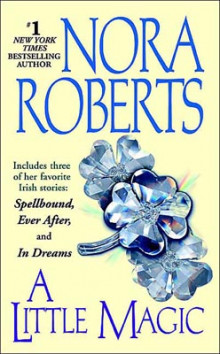 A Little Magic
A Little Magic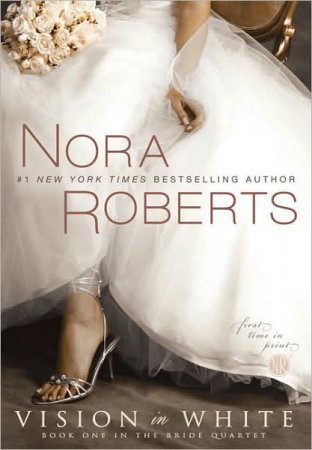 Vision in White
Vision in White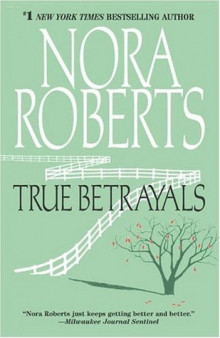 True Betrayals
True Betrayals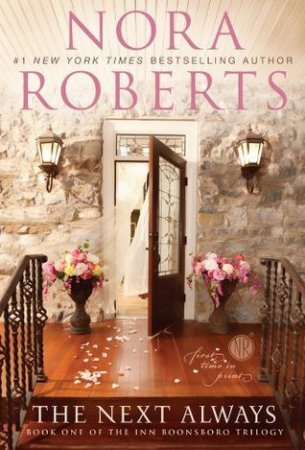 The Next Always
The Next Always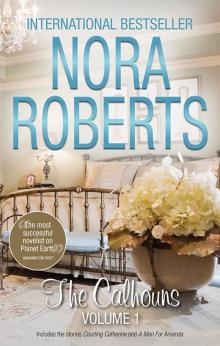 A Man for Amanda
A Man for Amanda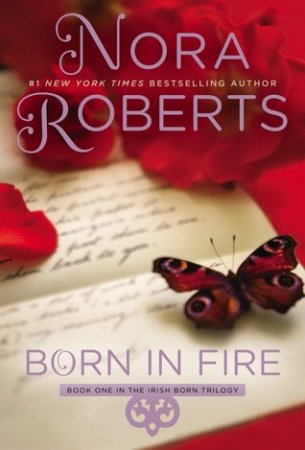 Born in Fire
Born in Fire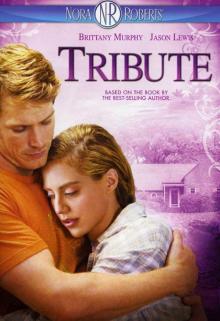 Tribute
Tribute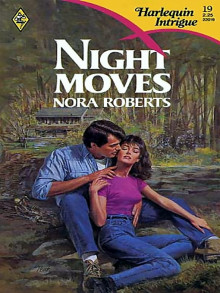 Night Moves
Night Moves Dance Upon the Air
Dance Upon the Air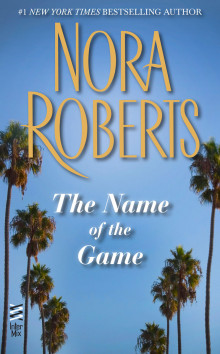 The Name of the Game
The Name of the Game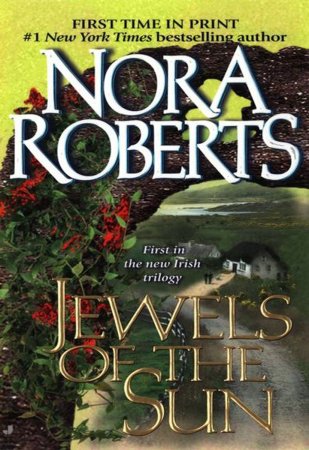 Jewels of the Sun
Jewels of the Sun River's End
River's End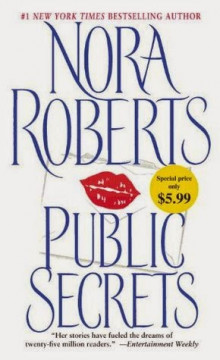 Public Secrets
Public Secrets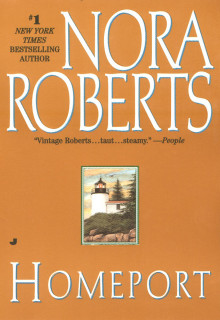 Homeport
Homeport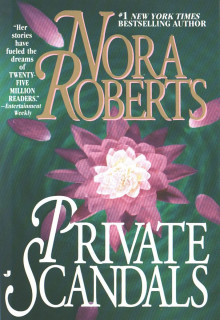 Private Scandals
Private Scandals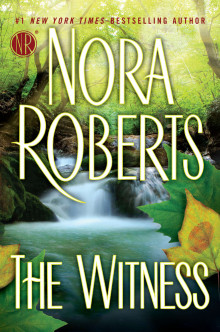 The Witness
The Witness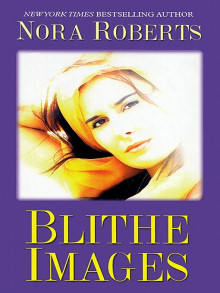 Blithe Images
Blithe Images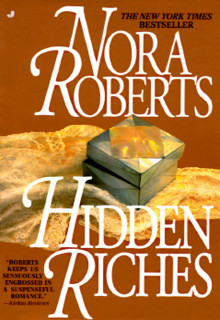 Hidden Riches
Hidden Riches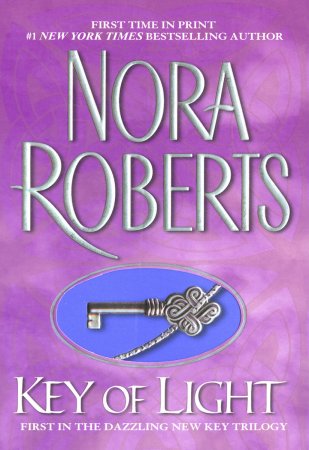 Key of Light
Key of Light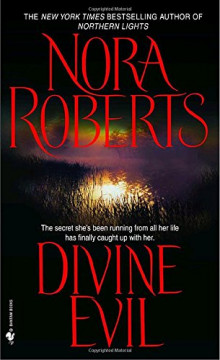 Divine Evil
Divine Evil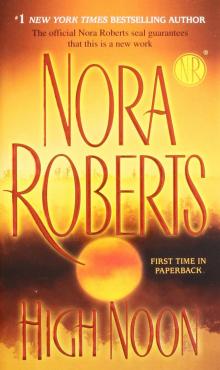 High Noon
High Noon Blue Dahlia
Blue Dahlia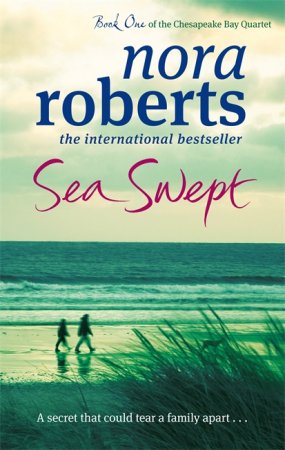 Sea Swept
Sea Swept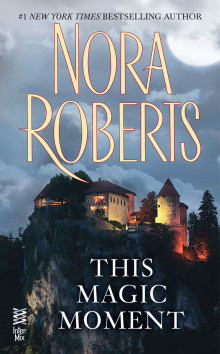 This Magic Moment
This Magic Moment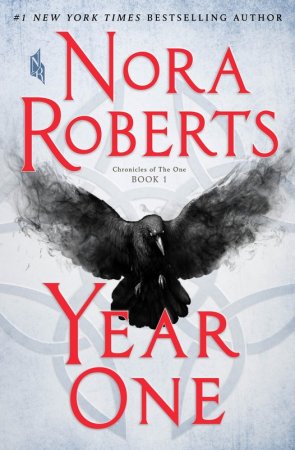 Year One
Year One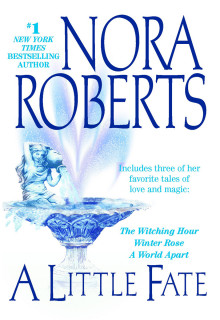 A Little Fate
A Little Fate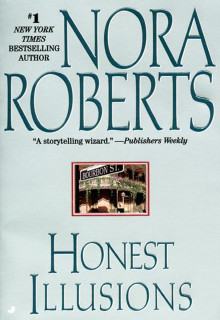 Honest Illusions
Honest Illusions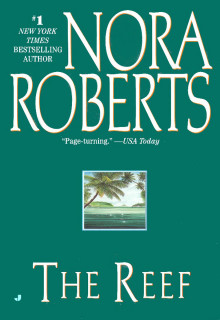 The Reef
The Reef Shelter in Place
Shelter in Place The Hollow
The Hollow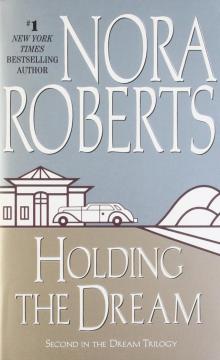 Holding the Dream
Holding the Dream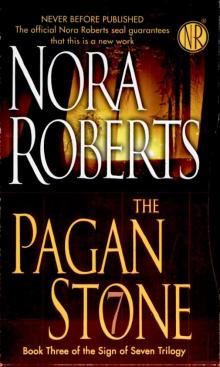 The Pagan Stone
The Pagan Stone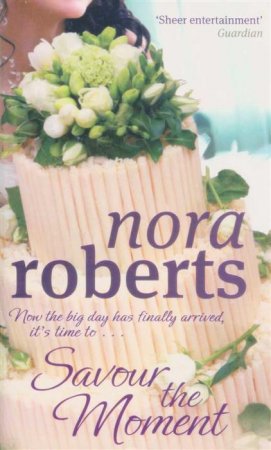 Savour the Moment
Savour the Moment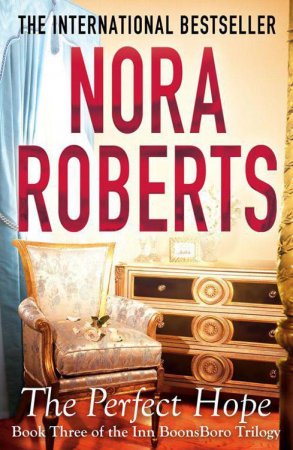 The Perfect Hope
The Perfect Hope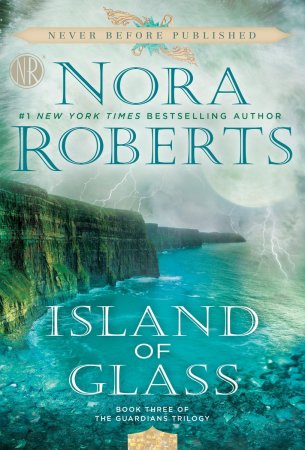 Island of Glass
Island of Glass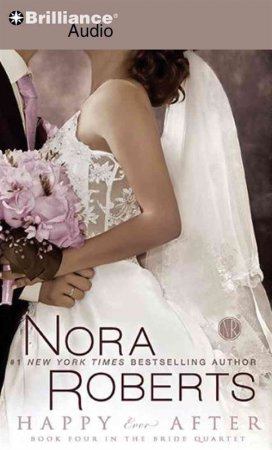 Happy Ever After
Happy Ever After Bed of Roses
Bed of Roses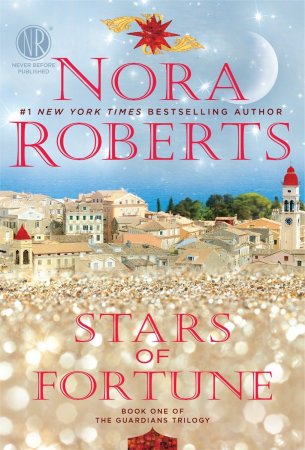 Stars of Fortune
Stars of Fortune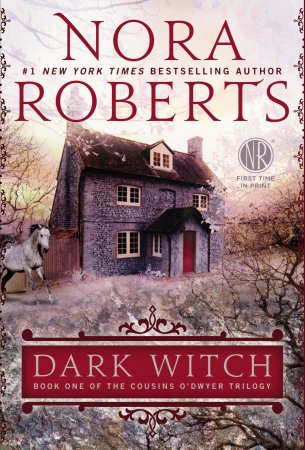 Dark Witch
Dark Witch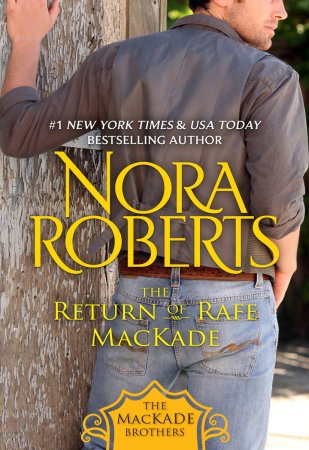 The Return of Rafe MacKade
The Return of Rafe MacKade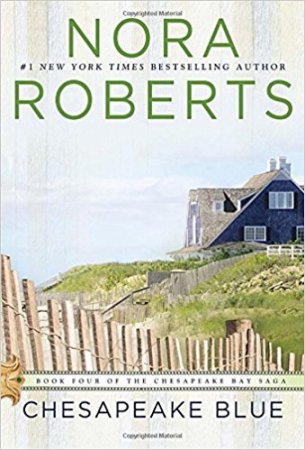 Chesapeake Blue
Chesapeake Blue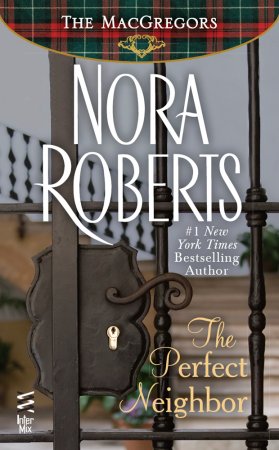 The Perfect Neighbor
The Perfect Neighbor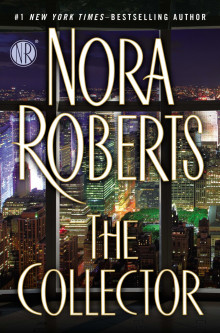 The Collector
The Collector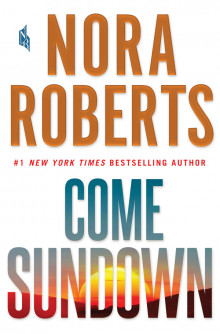 Come Sundown
Come Sundown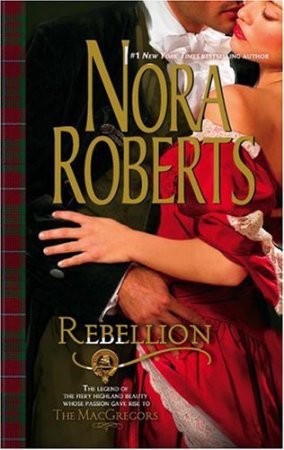 Rebellion
Rebellion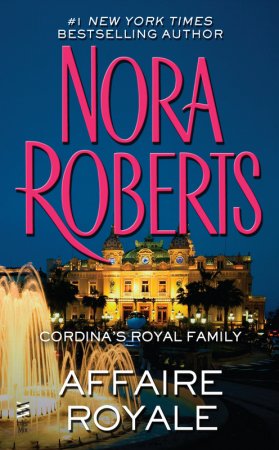 Affaire Royale
Affaire Royale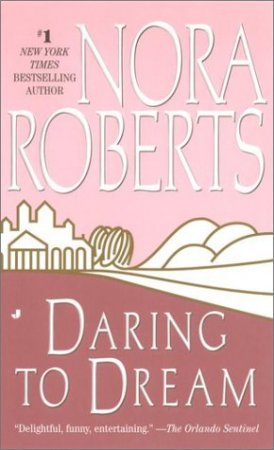 Daring to Dream
Daring to Dream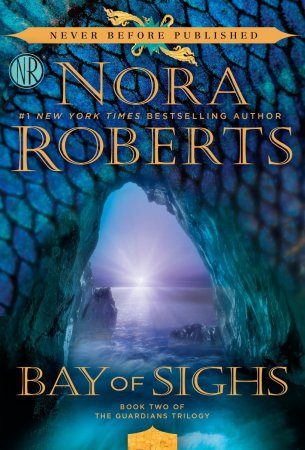 Bay of Sighs
Bay of Sighs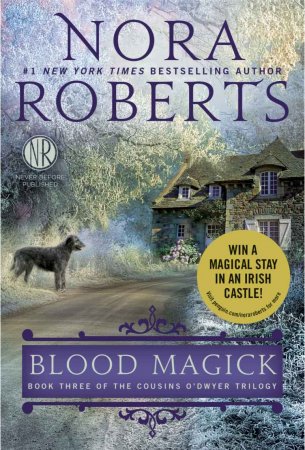 Blood Magick
Blood Magick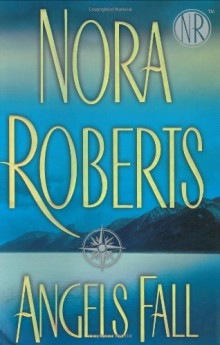 Angels Fall
Angels Fall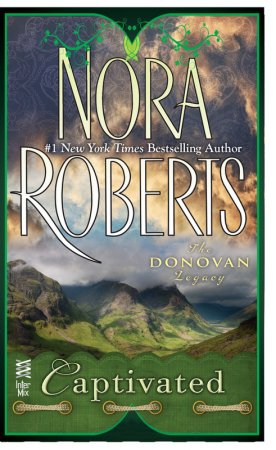 Captivated
Captivated The Last Boyfriend
The Last Boyfriend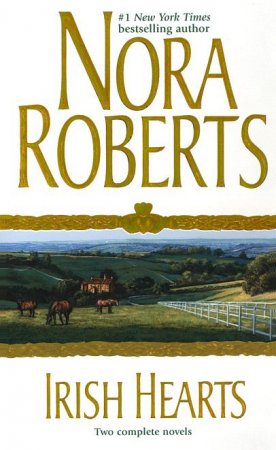 Irish Thoroughbred
Irish Thoroughbred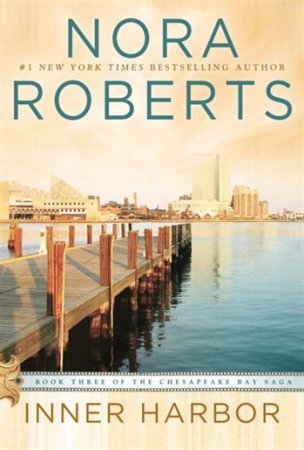 Inner Harbor
Inner Harbor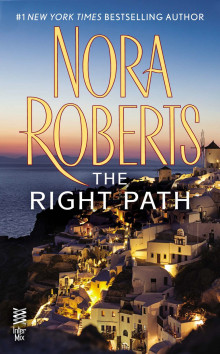 The Right Path
The Right Path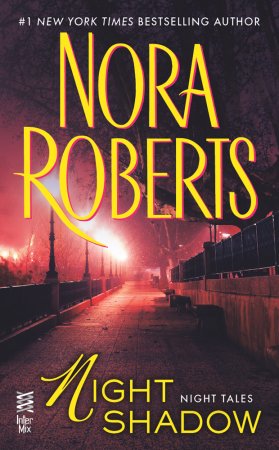 Night Shadow
Night Shadow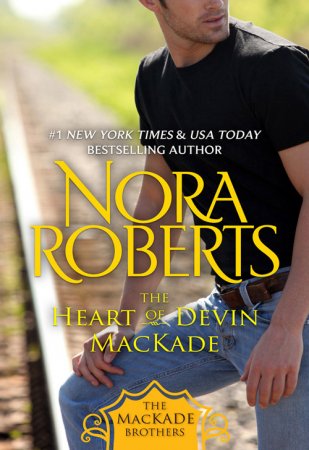 The Heart of Devin MacKade
The Heart of Devin MacKade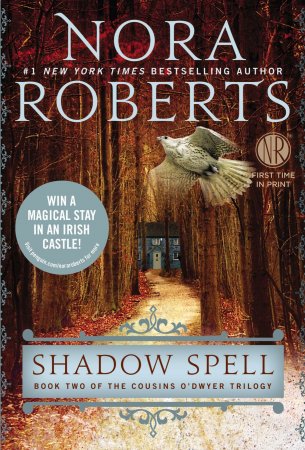 Shadow Spell
Shadow Spell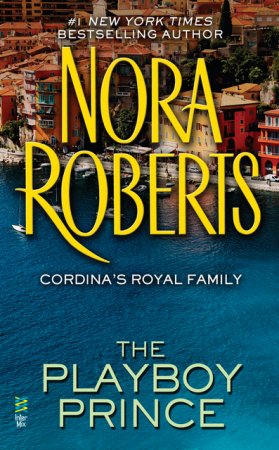 The Playboy Prince
The Playboy Prince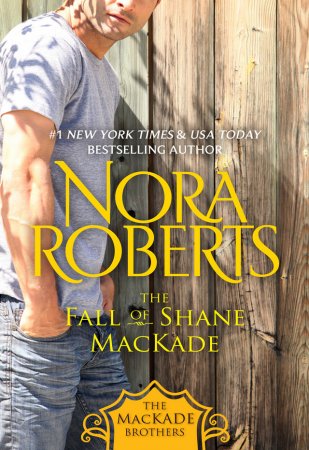 The Fall of Shane MacKade
The Fall of Shane MacKade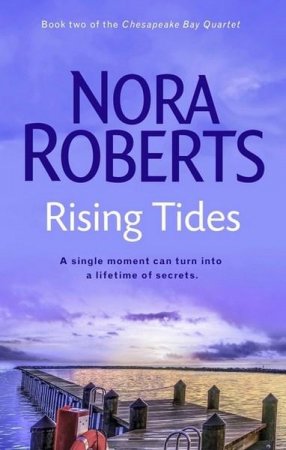 Rising Tides
Rising Tides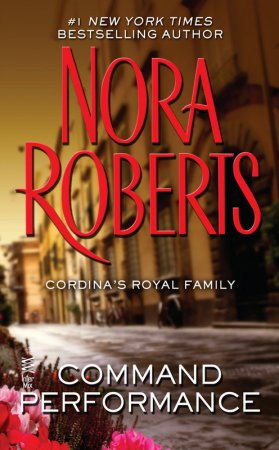 Command Performance
Command Performance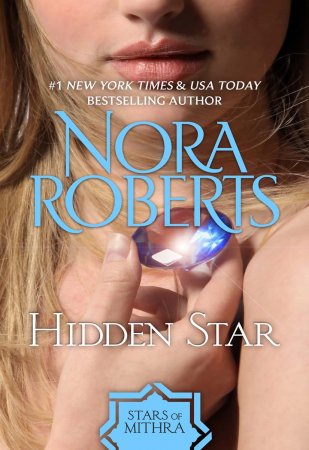 Hidden Star
Hidden Star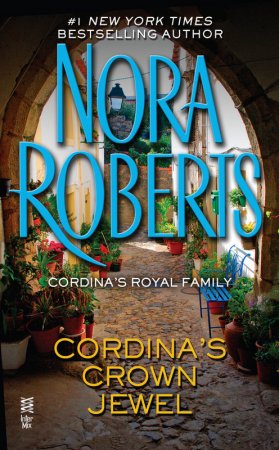 Cordina's Crown Jewel
Cordina's Crown Jewel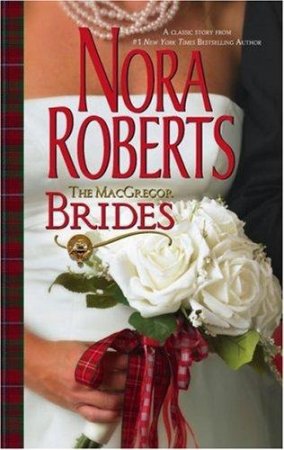 The MacGregor Brides
The MacGregor Brides The Pride of Jared MacKade
The Pride of Jared MacKade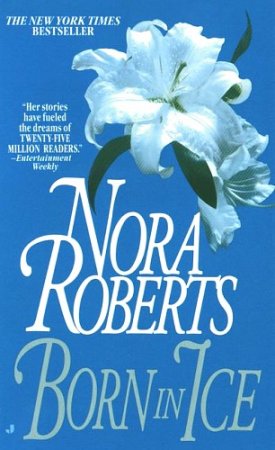 Born in Ice
Born in Ice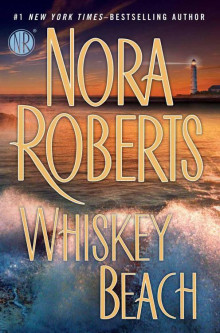 Whiskey Beach
Whiskey Beach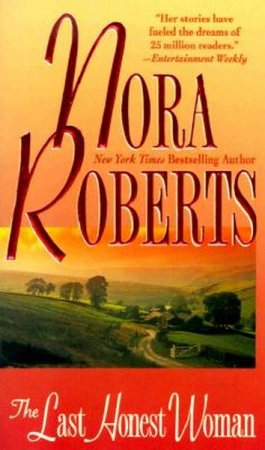 The Last Honest Woman
The Last Honest Woman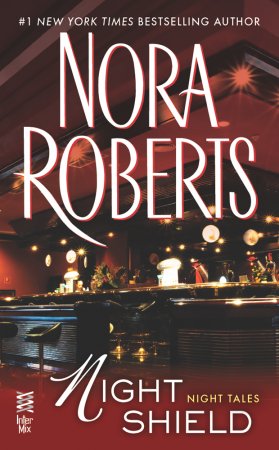 Night Shield
Night Shield Born in Shame
Born in Shame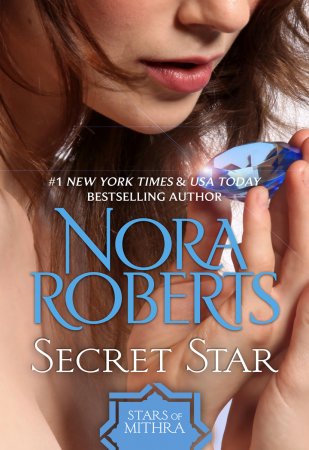 Secret Star
Secret Star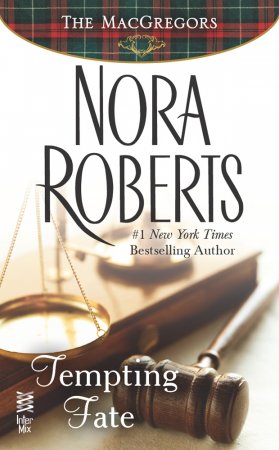 Tempting Fate
Tempting Fate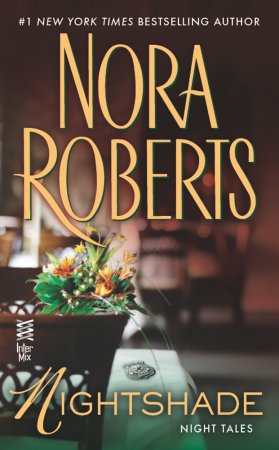 Nightshade
Nightshade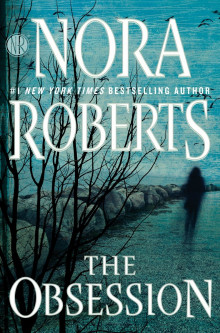 The Obsession
The Obsession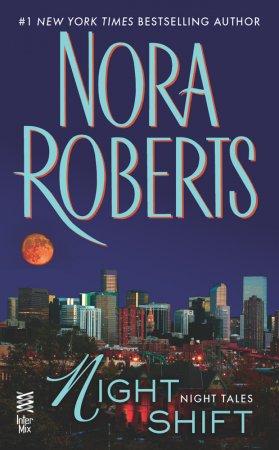 Night Shift
Night Shift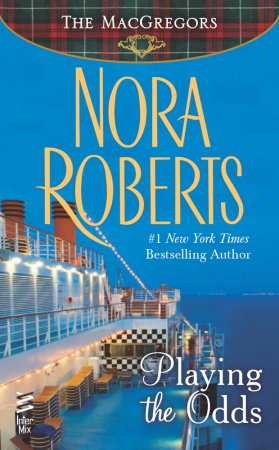 Playing The Odds
Playing The Odds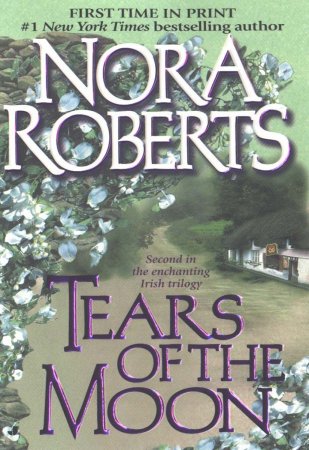 Tears of the Moon
Tears of the Moon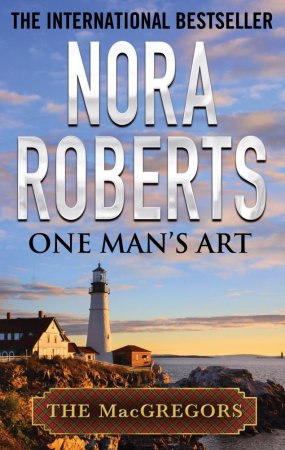 One Man's Art
One Man's Art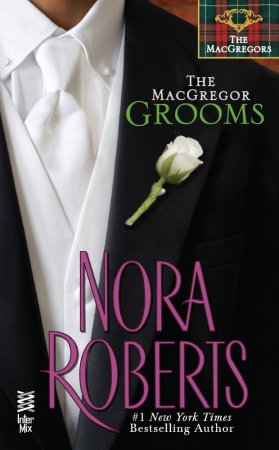 The MacGregor Groom
The MacGregor Groom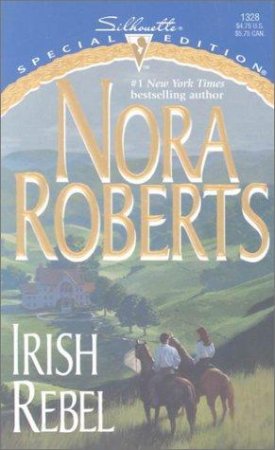 Irish Rebel
Irish Rebel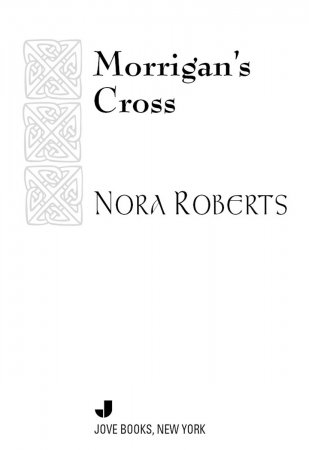 Morrigan's Cross
Morrigan's Cross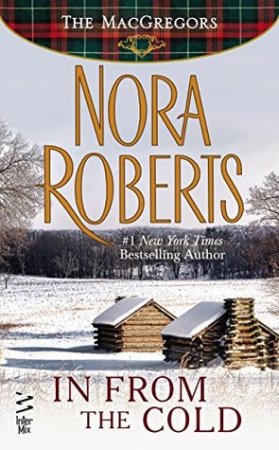 In From The Cold
In From The Cold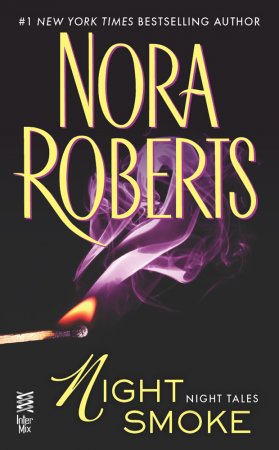 Night Smoke
Night Smoke Finding the Dream
Finding the Dream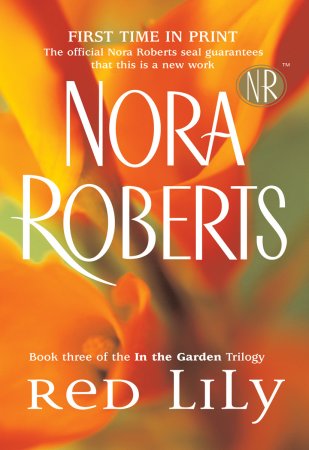 Red Lily
Red Lily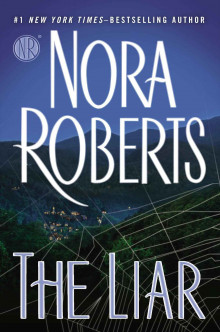 The Liar
The Liar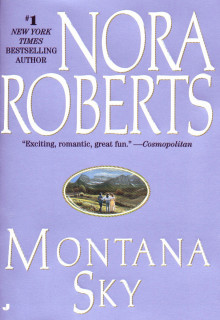 Montana Sky
Montana Sky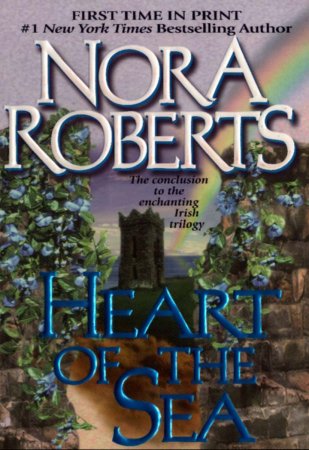 Heart of the Sea
Heart of the Sea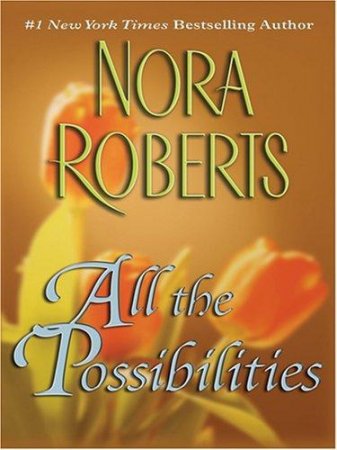 All The Possibilities
All The Possibilities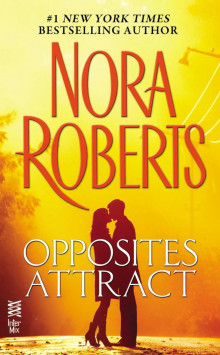 Opposites Attract
Opposites Attract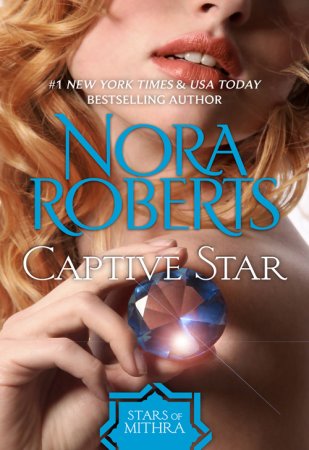 Captive Star
Captive Star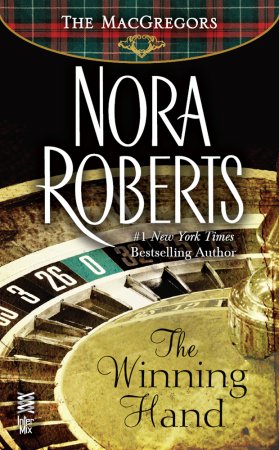 The Winning Hand
The Winning Hand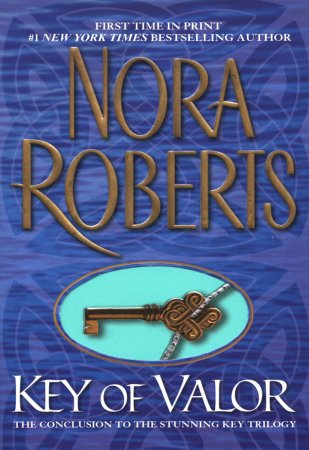 Key of Valor
Key of Valor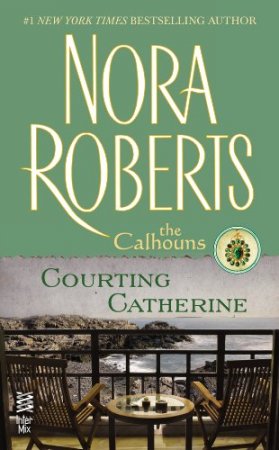 Courting Catherine
Courting Catherine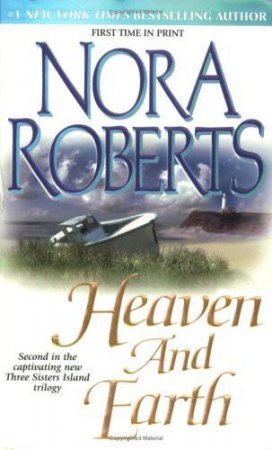 Heaven and Earth
Heaven and Earth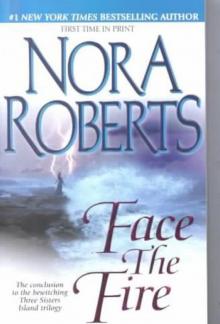 Face the Fire
Face the Fire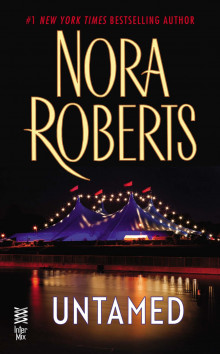 Untamed
Untamed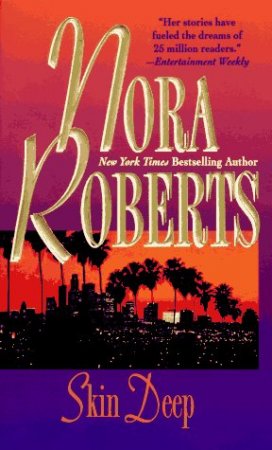 Skin Deep
Skin Deep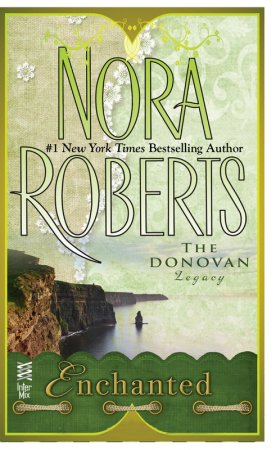 Enchanted
Enchanted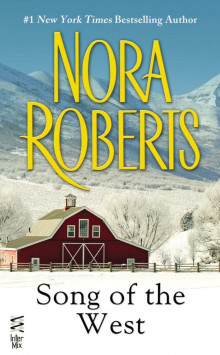 Song of the West
Song of the West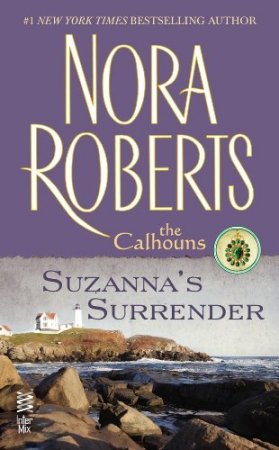 Suzanna's Surrender
Suzanna's Surrender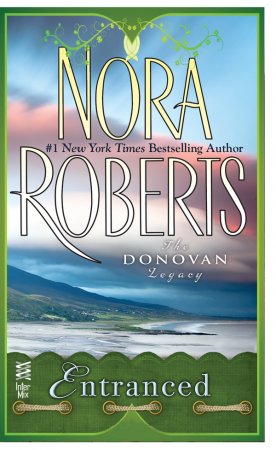 Entranced
Entranced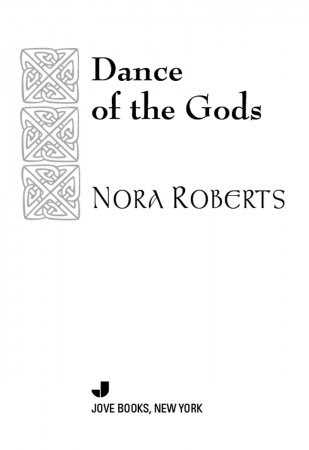 Dance of the Gods
Dance of the Gods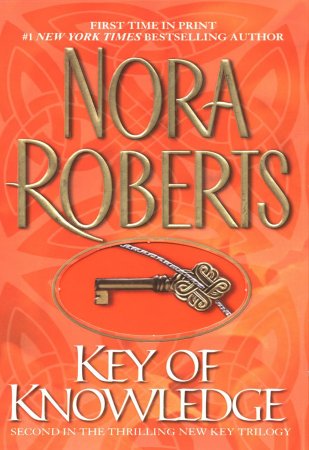 Key of Knowledge
Key of Knowledge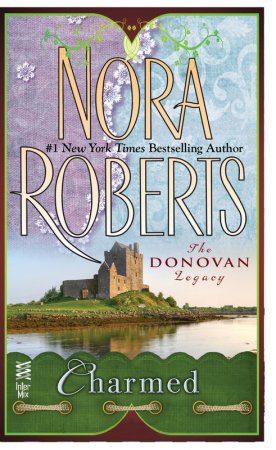 Charmed
Charmed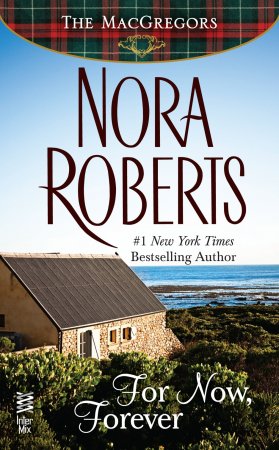 For Now, Forever
For Now, Forever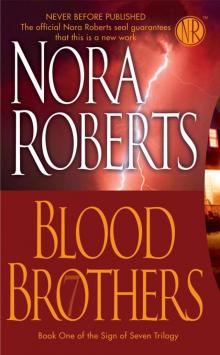 Blood Brothers
Blood Brothers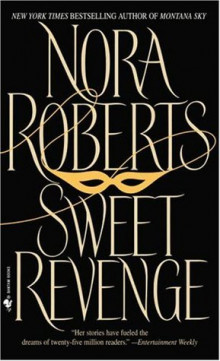 Sweet Revenge
Sweet Revenge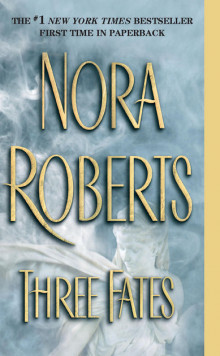 Three Fates
Three Fates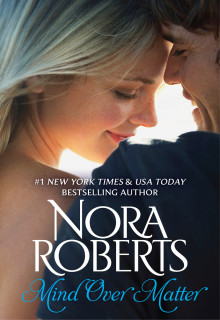 Mind Over Matter
Mind Over Matter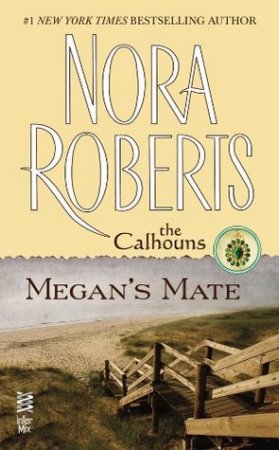 Megan's Mate
Megan's Mate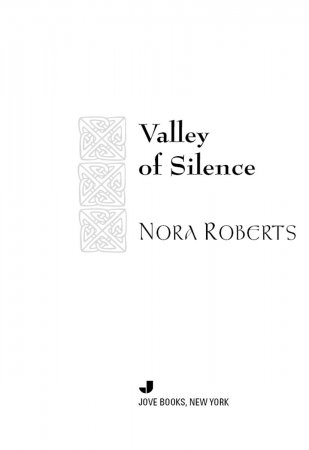 Valley of Silence
Valley of Silence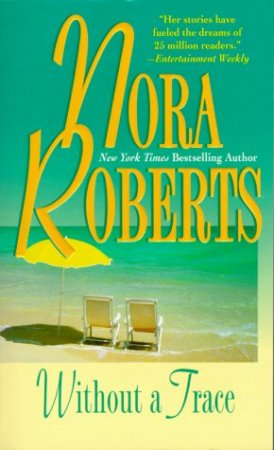 Without A Trace
Without A Trace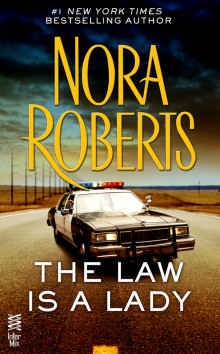 The Law is a Lady
The Law is a Lady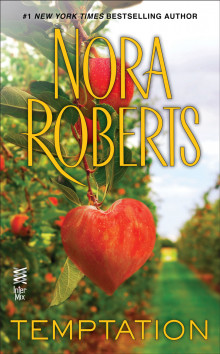 Temptation
Temptation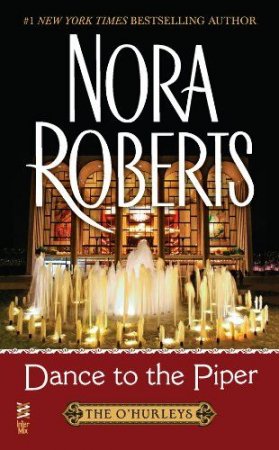 Dance to the Piper
Dance to the Piper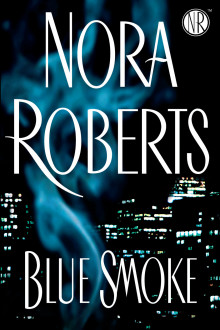 Blue Smoke
Blue Smoke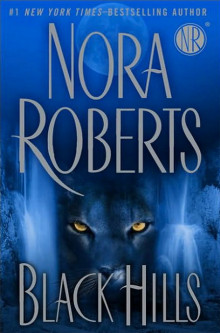 Black Hills
Black Hills The Heart's Victory
The Heart's Victory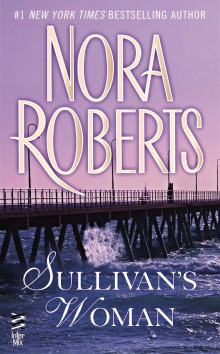 Sullivan's Woman
Sullivan's Woman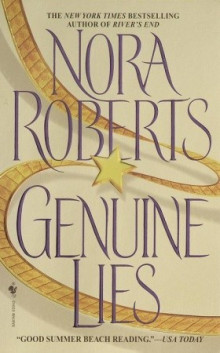 Genuine Lies
Genuine Lies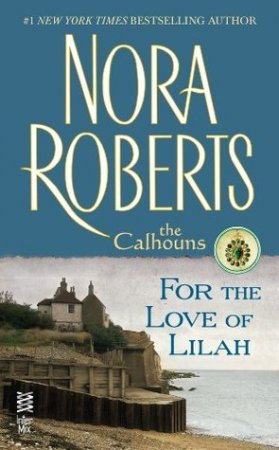 For the Love of Lilah
For the Love of Lilah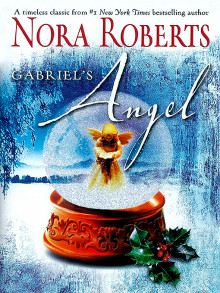 Gabriel's Angel
Gabriel's Angel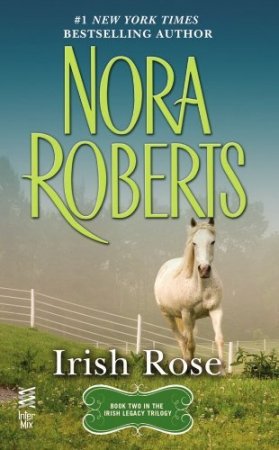 Irish Rose
Irish Rose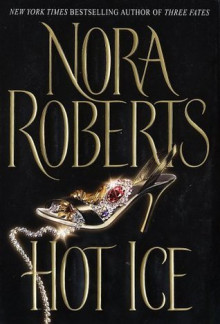 Hot Ice
Hot Ice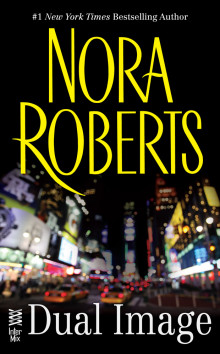 Dual Image
Dual Image Lawless
Lawless Catch My Heart
Catch My Heart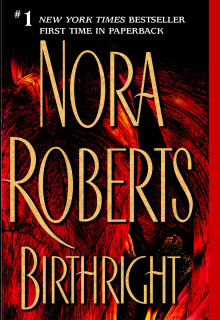 Birthright
Birthright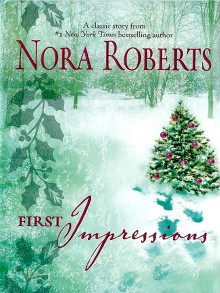 First Impressions
First Impressions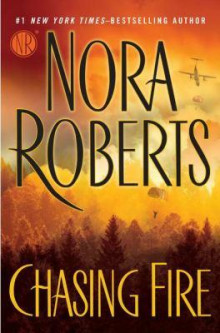 Chasing Fire
Chasing Fire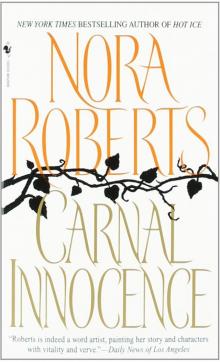 Carnal Innocence
Carnal Innocence Best Laid Plans
Best Laid Plans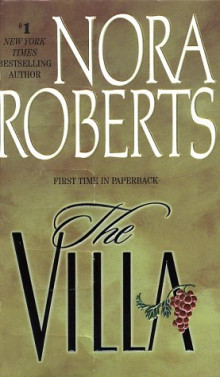 The Villa
The Villa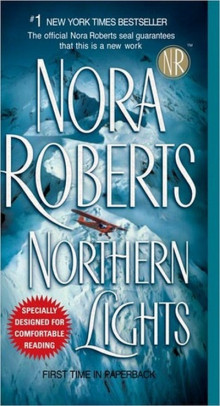 Northern Lights
Northern Lights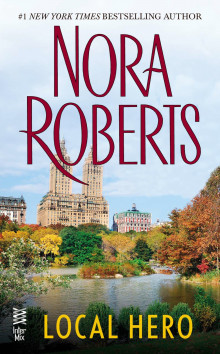 Local Hero
Local Hero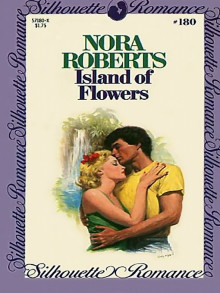 Island of Flowers
Island of Flowers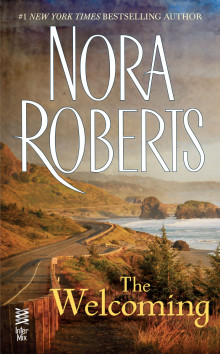 The Welcoming
The Welcoming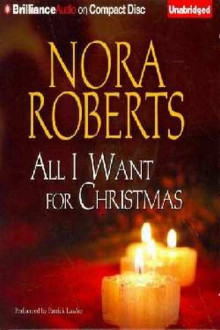 All I Want for Christmas
All I Want for Christmas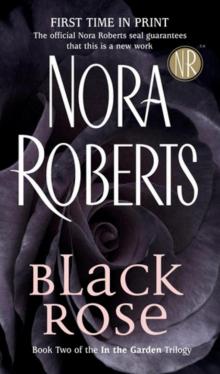 Black Rose
Black Rose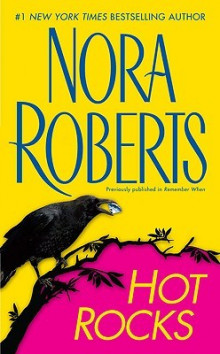 Hot Rocks
Hot Rocks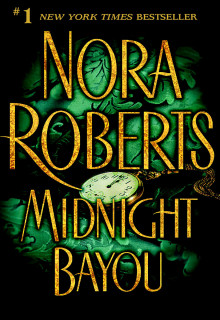 Midnight Bayou
Midnight Bayou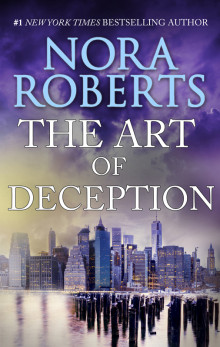 The Art of Deception
The Art of Deception From This Day
From This Day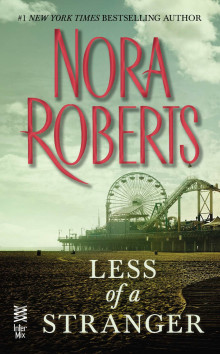 Less of a Stranger
Less of a Stranger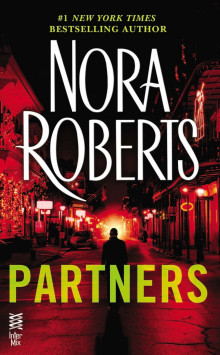 Partners
Partners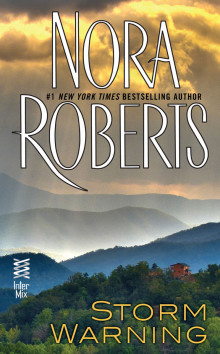 Storm Warning
Storm Warning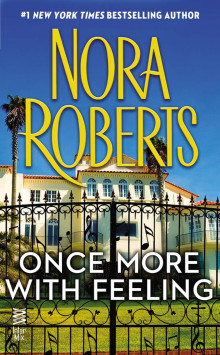 Once More With Feeling
Once More With Feeling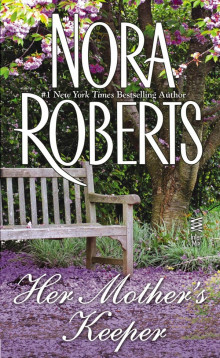 Her Mother's Keeper
Her Mother's Keeper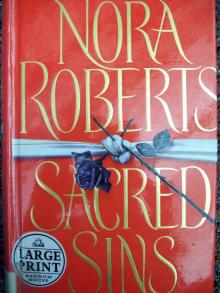 Sacred Sins
Sacred Sins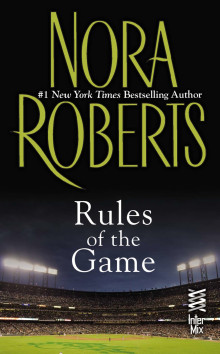 Rules of the Game
Rules of the Game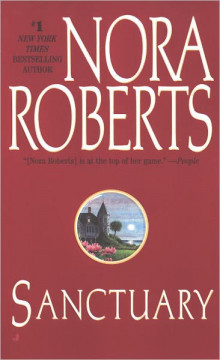 Sanctuary
Sanctuary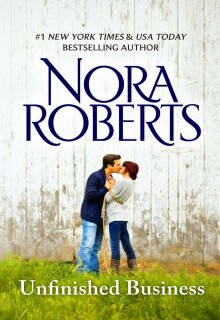 Unfinished Business
Unfinished Business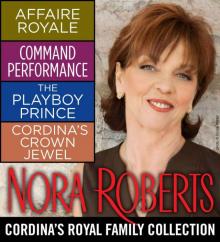 Cordina's Royal Family Collection
Cordina's Royal Family Collection Dangerous Embrace
Dangerous Embrace One Summer
One Summer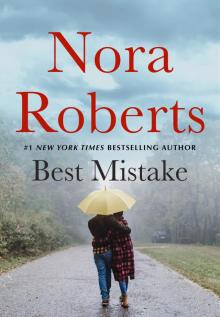 The Best Mistake
The Best Mistake Boundary Lines
Boundary Lines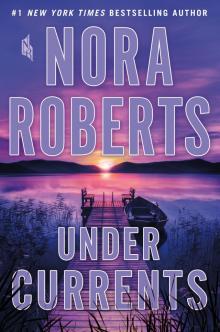 Under Currents
Under Currents The Stanislaski Series Collection, Volume 1
The Stanislaski Series Collection, Volume 1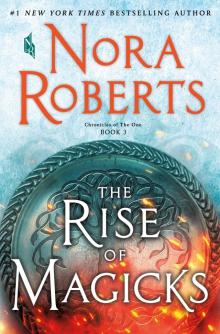 The Rise of Magicks
The Rise of Magicks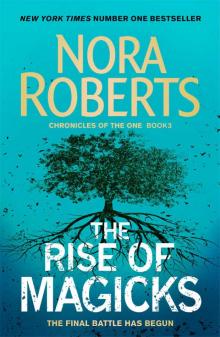 The Rise of Magicks (Chronicles of The One)
The Rise of Magicks (Chronicles of The One)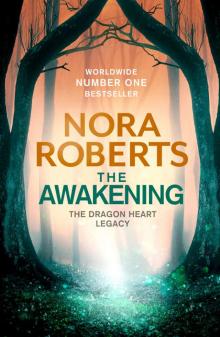 The Awakening: The Dragon Heart Legacy Book 1
The Awakening: The Dragon Heart Legacy Book 1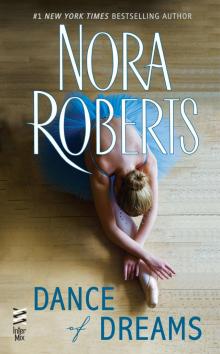 Dance of Dreams
Dance of Dreams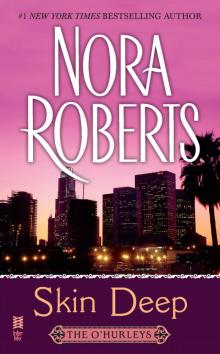 Skin Deep: The O'Hurleys
Skin Deep: The O'Hurleys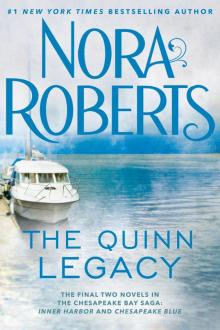 The Quinn Legacy: Inner Harbor ; Chesapeake Blue
The Quinn Legacy: Inner Harbor ; Chesapeake Blue![[Chronicles of the One 03.0] The Rise of Magicks Read online](http://i1.bookreadfree.com/11/chronicles_of_the_one_03_0_the_rise_of_magicks_preview.jpg) [Chronicles of the One 03.0] The Rise of Magicks
[Chronicles of the One 03.0] The Rise of Magicks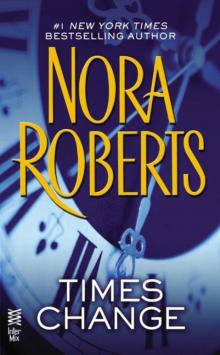 Times Change
Times Change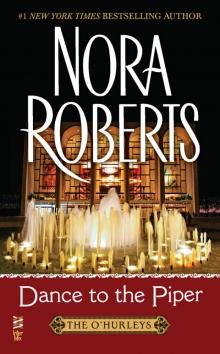 Dance to the Piper: The O'Hurleys
Dance to the Piper: The O'Hurleys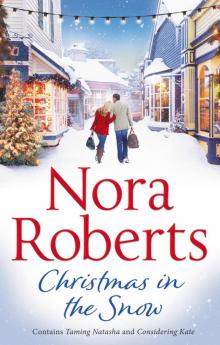 Christmas In the Snow: Taming Natasha / Considering Kate
Christmas In the Snow: Taming Natasha / Considering Kate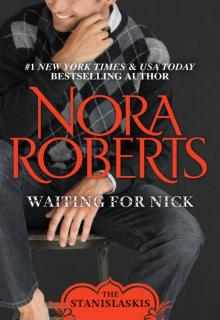 Waiting for Nick
Waiting for Nick Summer Desserts
Summer Desserts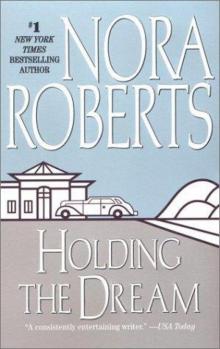 Dream 2 - Holding the Dream
Dream 2 - Holding the Dream The Novels of Nora Roberts, Volume 2
The Novels of Nora Roberts, Volume 2 In the Garden Trilogy
In the Garden Trilogy Eight Classic Nora Roberts Romantic Suspense Novels
Eight Classic Nora Roberts Romantic Suspense Novels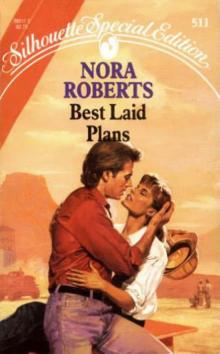 Best Laid Plans jh-2
Best Laid Plans jh-2 From the Heart
From the Heart Holiday Wishes
Holiday Wishes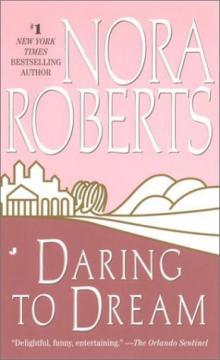 Dream 1 - Daring to Dream
Dream 1 - Daring to Dream Second Nature
Second Nature Summer Pleasures
Summer Pleasures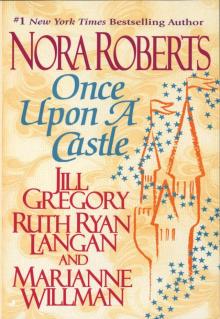 Once Upon a Castle
Once Upon a Castle Stars of Mithra Box Set: Captive StarHidden StarSecret Star
Stars of Mithra Box Set: Captive StarHidden StarSecret Star Impulse
Impulse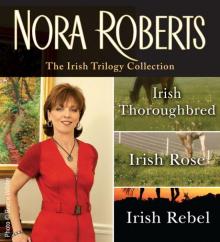 The Irish Trilogy by Nora Roberts
The Irish Trilogy by Nora Roberts The Pride Of Jared Mackade tmb-2
The Pride Of Jared Mackade tmb-2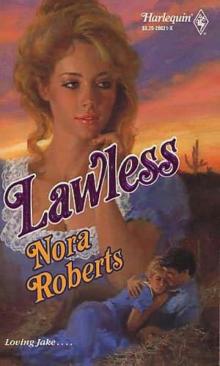 Lawless jh-3
Lawless jh-3 Taming Natasha
Taming Natasha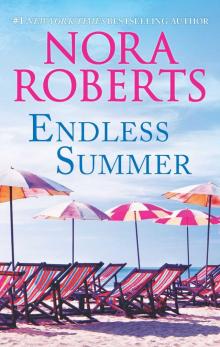 Endless Summer
Endless Summer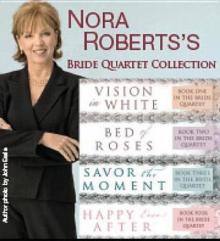 Bride Quartet Collection
Bride Quartet Collection Happy Ever After tbq-4
Happy Ever After tbq-4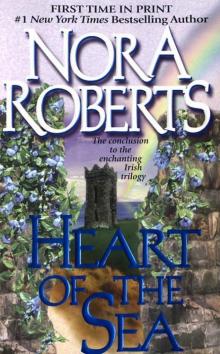 Heart Of The Sea goa-3
Heart Of The Sea goa-3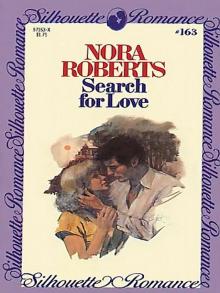 Search for Love
Search for Love Once upon a Dream
Once upon a Dream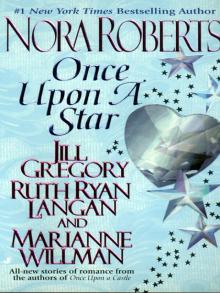 Once Upon a Star
Once Upon a Star Dream Trilogy
Dream Trilogy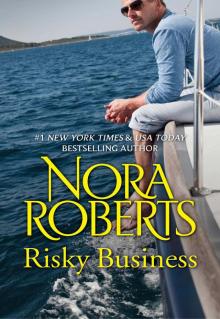 Risky Business
Risky Business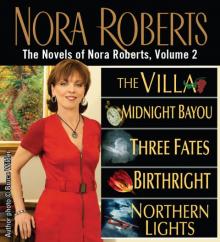 The Novels of Nora Roberts, Volume 3
The Novels of Nora Roberts, Volume 3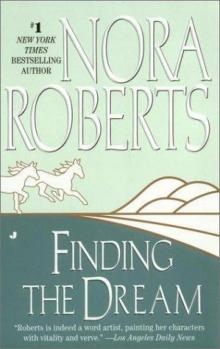 Dream 3 - Finding the Dream
Dream 3 - Finding the Dream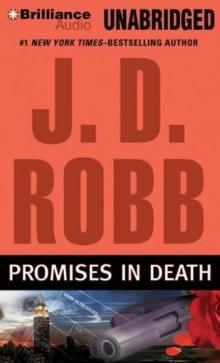 Promises in Death id-34
Promises in Death id-34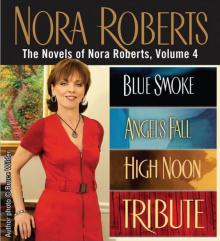 The Novels of Nora Roberts, Volume 4
The Novels of Nora Roberts, Volume 4 The Perfect Hope ib-3
The Perfect Hope ib-3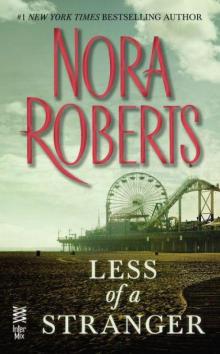 Less than a Stranger
Less than a Stranger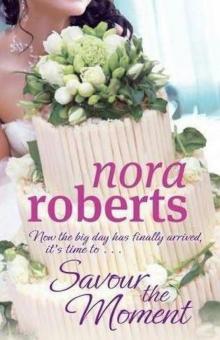 Savour the Moment: Now the Big Day Has Finally Arrived, It's Time To...
Savour the Moment: Now the Big Day Has Finally Arrived, It's Time To... Convincing Alex
Convincing Alex Bed of Roses tbq-2
Bed of Roses tbq-2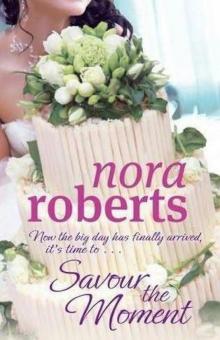 Savour the Moment tbq-3
Savour the Moment tbq-3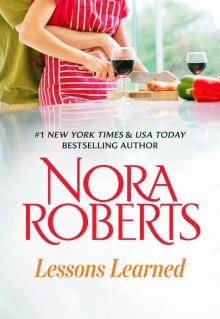 Lessons Learned
Lessons Learned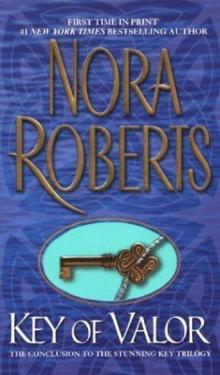 Key Of Valor k-3
Key Of Valor k-3 Red lily gt-3
Red lily gt-3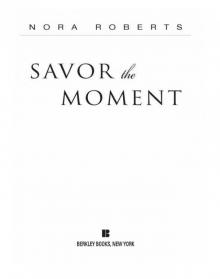 Savor the Moment
Savor the Moment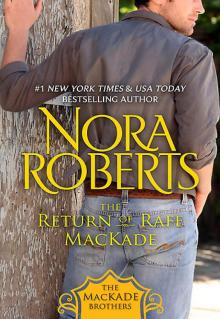 The Return Of Rafe Mackade tmb-1
The Return Of Rafe Mackade tmb-1 For The Love Of Lilah tcw-3
For The Love Of Lilah tcw-3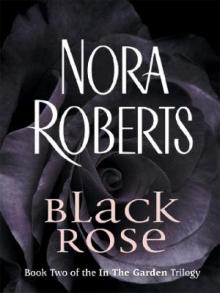 Black Rose gt-2
Black Rose gt-2 Novels: The Law is a Lady
Novels: The Law is a Lady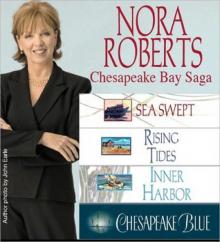 Chesapeake Bay Saga 1-4
Chesapeake Bay Saga 1-4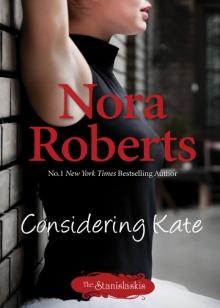 Considering Kate
Considering Kate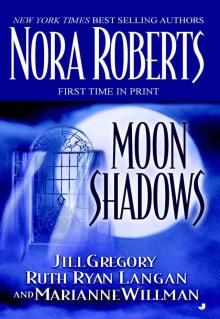 Moon Shadows
Moon Shadows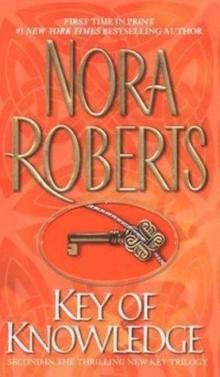 Key of Knowledge k-2
Key of Knowledge k-2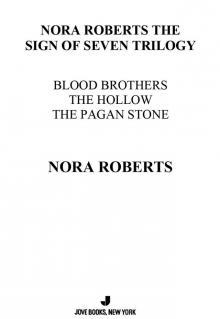 The Sign of Seven Trilogy
The Sign of Seven Trilogy Once Upon a Kiss
Once Upon a Kiss The Novels of Nora Roberts, Volume 5
The Novels of Nora Roberts, Volume 5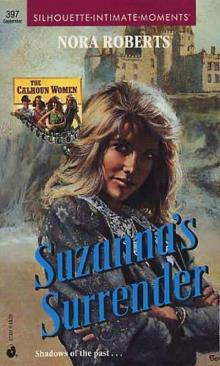 Suzanna's Surrender tcw-4
Suzanna's Surrender tcw-4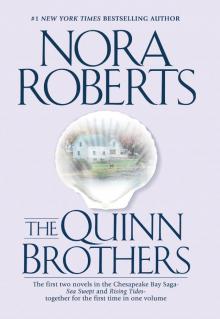 The Quinn Brothers
The Quinn Brothers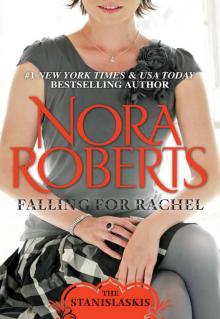 Falling for Rachel
Falling for Rachel Brazen Virtue
Brazen Virtue Time Was
Time Was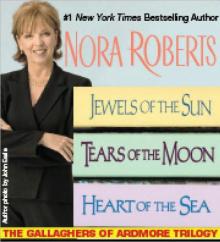 The Gallaghers of Ardmore Trilogy
The Gallaghers of Ardmore Trilogy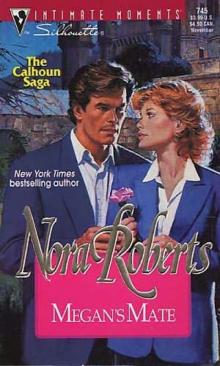 Megan's Mate tcw-5
Megan's Mate tcw-5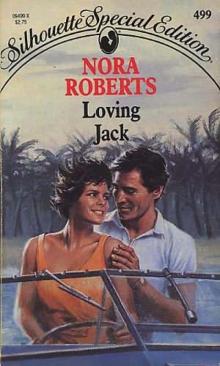 Loving Jack jh-1
Loving Jack jh-1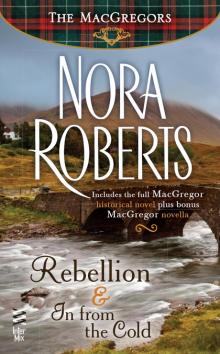 Rebellion & In From The Cold
Rebellion & In From The Cold Blue Dahlia gt-1
Blue Dahlia gt-1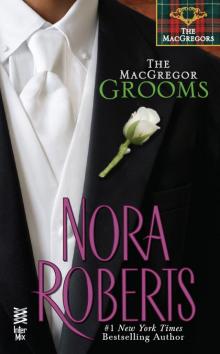 The MacGregor Grooms
The MacGregor Grooms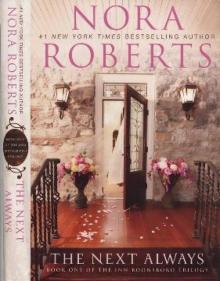 The Next Always tibt-1
The Next Always tibt-1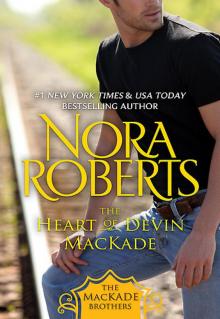 The Heart Of Devin Mackade tmb-3
The Heart Of Devin Mackade tmb-3 The Novels of Nora Roberts Volume 1
The Novels of Nora Roberts Volume 1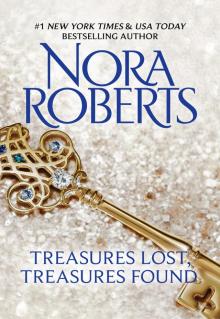 Treasures Lost, Treasures Found
Treasures Lost, Treasures Found Nora Roberts's Circle Trilogy
Nora Roberts's Circle Trilogy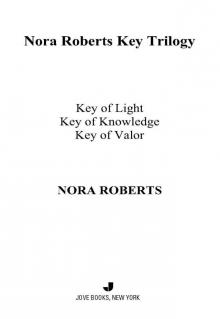 The Key Trilogy
The Key Trilogy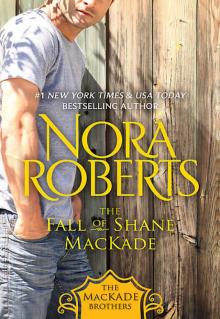 The Fall Of Shane Mackade tmb-4
The Fall Of Shane Mackade tmb-4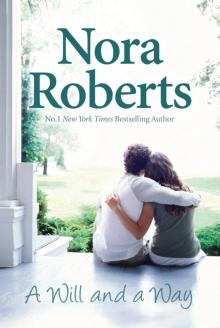 A Will And A Way
A Will And A Way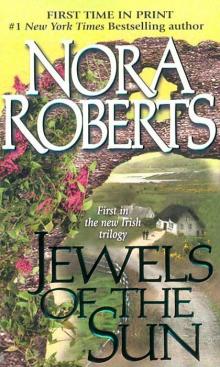 Jewels of the Sun goa-1
Jewels of the Sun goa-1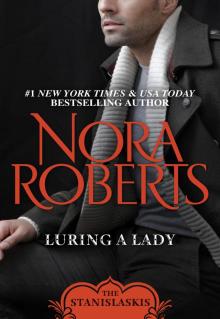 Luring a Lady
Luring a Lady